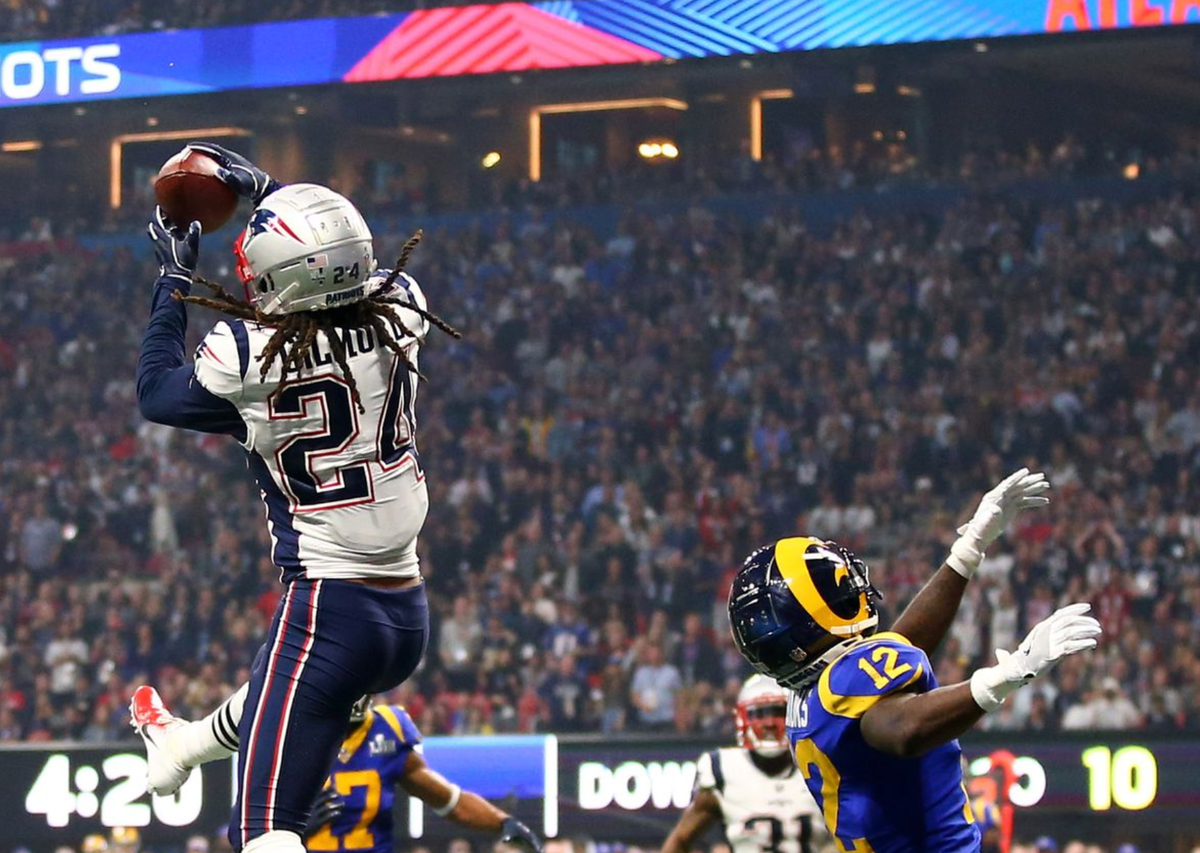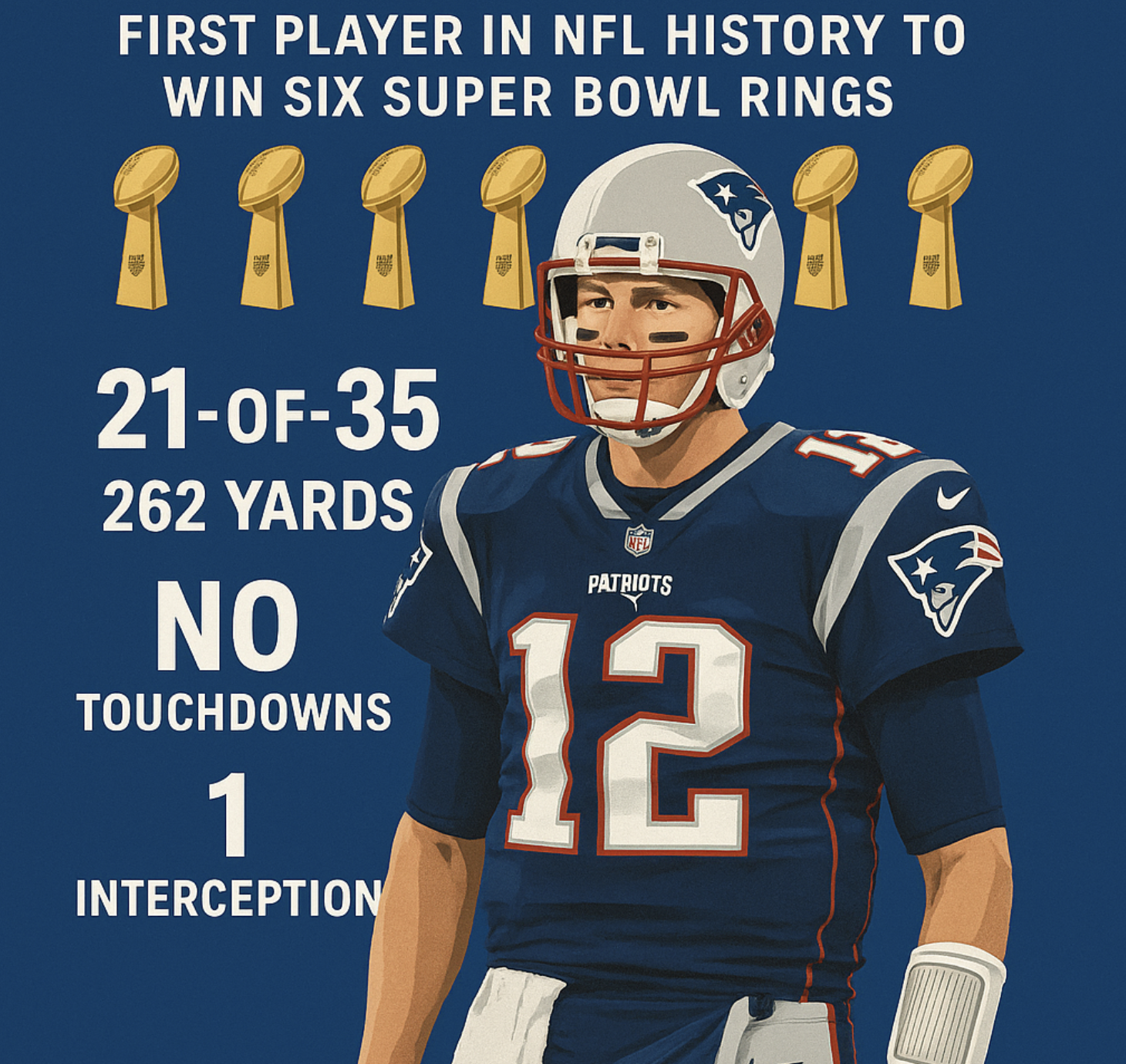Super Bowl LIII: A Chess Match for the Ages

Super Bowl LIII, played on February 3, 2019, at Mercedes-Benz Stadium in Atlanta, Georgia, was not the high-octane offensive shootout fans had come to expect in the modern NFL. Instead, it was a throwback—a grind-it-out, cerebral contest between two teams with dynastic aspirations: the New England Patriots and the Los Angeles Rams. The final score was a modest 13–3, with the Patriots capturing their sixth Super Bowl title under the triumvirate of Tom Brady, head coach Bill Belichick, and owner Robert Kraft.
This Super Bowl didn’t break offensive records; it shattered expectations. It was the lowest-scoring Super Bowl in history—a stark contrast to the offensive explosion of Super Bowl LII. But to seasoned football eyes, it was a masterpiece of defensive strategy, situational football, and elite preparation.
The Lead-Up
The 2018 NFL season saw the Rams emerge as one of the league’s most dynamic offensive units under second-year head coach Sean McVay. With third-year quarterback Jared Goff leading the charge and the explosive duo of running backs Todd Gurley and C.J. Anderson pounding the ground game, Los Angeles finished the regular season at 13–3. McVay's innovative use of pre-snap motion, outside zone runs, and play-action had pundits calling him a revolutionary.
Meanwhile, the Patriots entered the postseason with far less flash but immense pedigree. At 11–5, their record was unremarkable by New England standards, but they entered the playoffs with a familiar playoff gear. They dispatched the Chargers and then the Chiefs in an overtime thriller in the AFC Championship Game, showcasing Brady’s uncanny ability to engineer clutch drives.
Heading into Super Bowl LIII, it was billed as “youth vs. experience,” “innovation vs. tradition,” and “Goff vs. GOAT.”
The Game: A Defensive Clinic
From the opening kickoff, it was clear this would not be a high-scoring affair. The Patriots’ first drive ended in an interception, but it foreshadowed a theme that would play out all night: both defenses were going to dominate.
New England's defense, helmed by Brian Flores (who would soon take the head coaching job in Miami), executed a brilliant game plan designed by Belichick. They deployed a mix of disguised coverages and pressure packages that completely neutralized McVay's offense.
The Rams were held scoreless until the third quarter, and even that drive ended in a mere field goal. Goff, who had looked composed all season, was rattled by the Patriots' pressure and confused by their coverages. He finished 19-of-38 for 229 yards and an interception.
The Patriots’ offense wasn’t much more productive early on. Tom Brady, though efficient, struggled to find rhythm. The Rams’ defense, led by All-Pro defensive tackle Aaron Donald and coordinator Wade Phillips, brought steady pressure and tight coverage. But the Patriots stuck to their identity: patience, execution, and trust in the run game. Sony Michel, the rookie out of Georgia, provided the spark New England needed. His 2-yard touchdown run in the fourth quarter broke a 3–3 tie and became the game’s only touchdown.
Julian Edelman was the MVP of Super Bowl LIII—and rightly so. His precise route-running and toughness in traffic gave the Patriots the only consistent offensive option. He finished with 10 catches for 141 yards.
As one analyst from the Super Bowl Historical Society put it:
“In an era obsessed with stats and sizzle, Super Bowl LIII reminded us that defense, discipline, and detail still matter—and no one embodies those principles better than Belichick.”
A New Kind of Greatness
While some casual fans and pundits lamented the lack of scoring, football purists were in awe. Belichick’s ability to transform his defense week-to-week is legendary, but what he did to the Rams—a team that averaged 32.9 points per game—was astonishing. McVay, who became the youngest head coach to lead his team to the Super Bowl, admitted post-game he was “out-coached.”
Indeed, Goff struggled all game to recognize disguised coverages, often snapping the ball with only seconds left on the play clock due to confusion. Without the early-down effectiveness of Gurley or Anderson, the Rams found themselves in 3rd-and-long situations, which only fed into the Patriots’ defensive trap.
The 13–3 final score is often remembered for its paucity, but within that figure lies a depth of strategy. The Patriots punted five times. The Rams punted a staggering nine times. There were just 16 total drives with points.
“What Super Bowl LIII lacked in fireworks, it made up for in football IQ,” said another historian at the Super Bowl Historical Society. “Belichick didn’t just win a game—he taught a clinic in adaptability, film study, and anticipation.”
Legacy Cemented
With the win, Tom Brady became the first player in NFL history to win six Super Bowl rings, breaking a tie with Charles Haley. Though his stat line—21-of-35 for 262 yards, no touchdowns, and an interception—was modest, he was, as always, composed and clutch when it mattered. It was his late-game connection with tight end Rob Gronkowski that set up the Michel touchdown and sealed the deal.

Edelman, often overlooked in discussions about elite receivers, was vindicated with his MVP honors. His routes, timing, and toughness epitomized the Patriots’ culture of precision and resilience.
On the other side, the Rams were left with questions. Todd Gurley, who had been in the MVP conversation earlier in the season, was mysteriously absent in the game plan—reportedly due to a lingering knee injury. Goff, while still young, faced scrutiny over his performance under pressure.
Still, the Rams’ run to the Super Bowl under a 33-year-old coach laid the foundation for future success. McVay would later redeem himself with a championship of his own in Super Bowl LVI, proving that even geniuses sometimes need time to grow.
The Final Take
Super Bowl LIII was not a ratings bonanza or a viral clip factory. It didn’t have the walk-off touchdowns or trick plays of its predecessors. But it was a masterclass in how to win football games at the highest level.
It showcased the value of coaching, preparation, and veteran leadership. It proved that in a league obsessed with pace and spectacle, there is still room—and reward—for nuance and control.
It was Bill Belichick’s masterpiece. It was Tom Brady’s coronation. It was New England’s sixth championship in 18 years, confirming their place as the NFL’s greatest modern dynasty.
And for those who truly love the game—not just its highlights—Super Bowl LIII was unforgettable.
Box Score Recap
Final Score: Patriots 13, Rams 3
MVP: Julian Edelman (WR) – 10 catches, 141 yards
Key Stats:
- Patriots: 407 total yards, 1 TD, 1 INT
- Rams: 260 total yards, 0 TD, 1 INT
- Punts: Rams (9), Patriots (5)
- Time of Possession: Patriots (33:10), Rams (26:50)
Location: Mercedes-Benz Stadium, Atlanta, GA
Date: February 3, 2019
Attendance: 70,081
The scoreboard might’ve been low, but the stakes, execution, and legacy implications were as high as ever. Super Bowl LIII will be remembered as the day that defense—and discipline—won the day.
